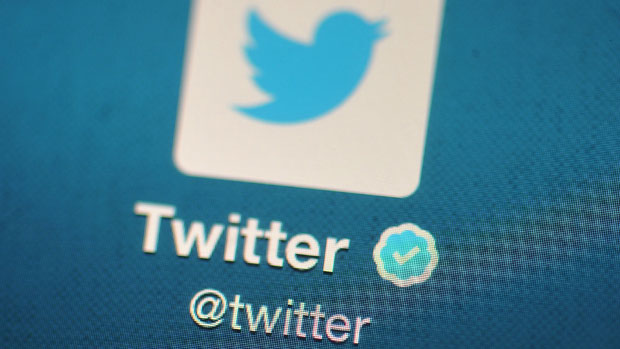Twitter's plan to crack down on trolls and online abuse
'We're going to get a lot more aggressive about it, and it's going to start right now,' vows Twitter CEO

A free daily email with the biggest news stories of the day – and the best features from TheWeek.com
You are now subscribed
Your newsletter sign-up was successful
Twitter has announced details of a new, hardened approach to dealing with trolls and online abuse in order to improve the safety of its users.
The social media giant has come under mounting pressure to deal with the soaring levels of abuse on its site. Earlier this month, an internal memo revealed CEO Dick Costolo admitting that Twitter "sucks at dealing with trolls".
The company says it has already overhauled how it reviews reports of abuse, which involved "significant changes" to its tools, processes and staffing. "These investments allow us to handle more reports of abuse with greater efficiency," it added.
The Week
Escape your echo chamber. Get the facts behind the news, plus analysis from multiple perspectives.

Sign up for The Week's Free Newsletters
From our morning news briefing to a weekly Good News Newsletter, get the best of The Week delivered directly to your inbox.
From our morning news briefing to a weekly Good News Newsletter, get the best of The Week delivered directly to your inbox.
Since improving reporting policies in December, Twitter says it now receives five times as many abuse reports and has tripled the size of its support team tasked with handling them.
New measures will include forcing users who receive temporary bans to verify a telephone number before they are allowed back on the site. This will make it easier for Twitter to cross-check phone numbers against repeat offenders and ban them permanently.
The company has also pledged to introduce further improvements to its abuse reporting tools, and make it easier for users to filter abusive messages out of their replies.
It also plans to shift "the cost of dealing with harassment" on to the abusers, rather than the victims, Costolo told the New York Times. However, he gave no details on how the company plans to accomplish this.
A free daily email with the biggest news stories of the day – and the best features from TheWeek.com
Costolo claimed the leaked memo showed his determination to deal with the problem. "I wanted to really send a wake-up call to the company that we're going to get a lot more aggressive about it, and it’s going to start right now," he said.
"Some people believe that Twitter hasn't taken the issue seriously because harassment isn't a form of physical harm – they're just tweets. No, that's not true at all. We've always taken it seriously," he added.
"This move doesn't resolve Twitter's whack-a-mole troll problem entirely," says The Verge. But it does "add a layer of friction to the lives of the most dedicated trolls, and in that sense it could at least begin to address the issue".
-
 Quiz of The Week: 14 – 20 February
Quiz of The Week: 14 – 20 FebruaryQuiz Have you been paying attention to The Week’s news?
-
 The Week Unwrapped: Do the Freemasons have too much sway in the police force?
The Week Unwrapped: Do the Freemasons have too much sway in the police force?Podcast Plus, what does the growing popularity of prediction markets mean for the future? And why are UK film and TV workers struggling?
-
 Properties of the week: pretty thatched cottages
Properties of the week: pretty thatched cottagesThe Week Recommends Featuring homes in West Sussex, Dorset and Suffolk
-
 Epstein files topple law CEO, roil UK government
Epstein files topple law CEO, roil UK governmentSpeed Read Peter Mandelson, Britain’s former ambassador to the US, is caught up in the scandal
-
 Iran and US prepare to meet after skirmishes
Iran and US prepare to meet after skirmishesSpeed Read The incident comes amid heightened tensions in the Middle East
-
 Grok in the crosshairs as EU launches deepfake porn probe
Grok in the crosshairs as EU launches deepfake porn probeIN THE SPOTLIGHT The European Union has officially begun investigating Elon Musk’s proprietary AI, as regulators zero in on Grok’s porn problem and its impact continent-wide
-
 Israel retrieves final hostage’s body from Gaza
Israel retrieves final hostage’s body from GazaSpeed Read The 24-year-old police officer was killed during the initial Hamas attack
-
 China’s Xi targets top general in growing purge
China’s Xi targets top general in growing purgeSpeed Read Zhang Youxia is being investigated over ‘grave violations’ of the law
-
 Panama and Canada are negotiating over a crucial copper mine
Panama and Canada are negotiating over a crucial copper mineIn the Spotlight Panama is set to make a final decision on the mine this summer
-
 Why Greenland’s natural resources are nearly impossible to mine
Why Greenland’s natural resources are nearly impossible to mineThe Explainer The country’s natural landscape makes the task extremely difficult
-
 Iran cuts internet as protests escalate
Iran cuts internet as protests escalateSpeed Reada Government buildings across the country have been set on fire